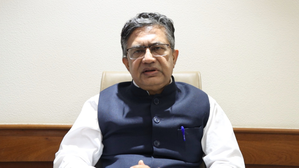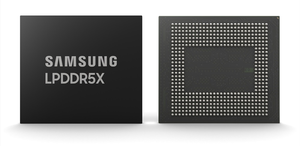Political stability and a strong social security system contributed to economic growth, says NSE’s Ashish Chauhan (IANS Interview)

New Delhi, April 16 (IANS) Indian stock markets are thriving due to political stability and a robust social security framework developed in the last 10 years, according to Ashish Kumar Chauhan, MD and CEO of National Stock Exchange (NSE). Chauhan, in an interview with IANS, highlighted the impact of poverty reduction on economic growth and confidence levels of citizens.
Chauhan praised Prime Minister Narendra Modi’s rule for creating social security measures while reducing fiscal deficit, mentioning schemes like Pradhan Mantri Suraksha Bima Yojana (PMSBY) and Pradhan Mantri Jeevan Jyoti Yojana (PMJJBY) which have benefited crores of people, boosting financial confidence in small towns and cities.
Under Chauhan’s leadership, NSE has flourished with the Nifty index surging from 7,500 in 2013-2014 to above 22,000 today. The exchange reported an 8% rise in consolidated net profit to Rs 1,975 crore for Q3 FY24 and contributed Rs 28,131 crore to the exchequer in the first nine months of FY24.
Chauhan emphasized the growth in the corporate sector, particularly in banking, with increased listings of new companies and significant investments in infrastructure projects in the last decade. He also noted a steady rise in income and decrease in unemployment rates during this period, attributing the success to various government initiatives.
A mechanical engineer from IIT Bombay and alumnus of IIM Calcutta, Ashish Kumar Chauhan is recognized as a key expert in financial market policies, as per IANS report. The NSE, under his guidance, has embraced cutting-edge technologies for seamless operations and witnessed unprecedented growth in recent years.










